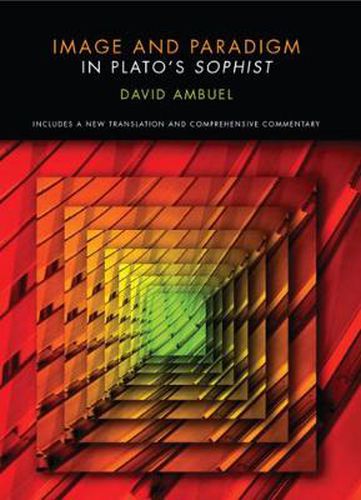Readings Newsletter
Become a Readings Member to make your shopping experience even easier.
Sign in or sign up for free!
You’re not far away from qualifying for FREE standard shipping within Australia
You’ve qualified for FREE standard shipping within Australia
The cart is loading…






The Sophist sets out to explain what the sophist does by defining his art. But the sophist has no art. Plato lays out a challenging puzzle in metaphysics, the nature of philosophy, and the imitation of philosophy that is unraveled in this new and unconventional interpretation. Here is a new translation of this important late Platonic dialogue, with a comprehensive commentary that reverses the dominant trends in the scholarship of the last fifty years. The Sophist is shown to be not a dry exposition of doctrine, but a rich exercise in dialectic, which reveals both the Eleatic roots of Platonic metaphysics and Plato’s criticism of unrevised Eleaticism as a theoretical underpinning for sophistry. The Sophist is presented now not as an artefact of the intellectual past or precursor of late 20th century philosophical theories, but as living philosophy. In a new translation and interpretation, this late dialogue is shown to be a defense of and not a departure from Plato’s metaphysics. The book is intended to provide a complete interpretation of Plato’s Sophist as a whole. Central to the methodology adopted is the assumption that all elements of the dialogue to be understood must be understood in the context of the dialogue as a whole and in its relation to other works in the Platonic corpus. Three main points are argued: the dialogue does not present a definitive or positive doctrine of the late Plato, but has the structure of a reduction ad absurdum; the figure of the sophist is employed to critically examine the metaphysics of Parmenides. While acknowledging a core of metaphysical insight in Parmenides, the argument implies that, by failing to account for resemblance, Eleaticism implies an inadequate theory of relations, which makes impossible an adequate understanding of essence. Consequently, Eleaticism unrevised can be taken as the philosophical underpinning for the antithesis of philosophy, lending legitimacy to sophistry; the criticism constitutes an indirect argument for Platonic metaphysics, which has roots in Eleaticism, that is, for the Theory of Forms. Here is a new translation of this important late Platonic dialogue, with a comprehensive commentary that reverses the dominant trends in the scholarship of the last fifty years.
$9.00 standard shipping within Australia
FREE standard shipping within Australia for orders over $100.00
Express & International shipping calculated at checkout
The Sophist sets out to explain what the sophist does by defining his art. But the sophist has no art. Plato lays out a challenging puzzle in metaphysics, the nature of philosophy, and the imitation of philosophy that is unraveled in this new and unconventional interpretation. Here is a new translation of this important late Platonic dialogue, with a comprehensive commentary that reverses the dominant trends in the scholarship of the last fifty years. The Sophist is shown to be not a dry exposition of doctrine, but a rich exercise in dialectic, which reveals both the Eleatic roots of Platonic metaphysics and Plato’s criticism of unrevised Eleaticism as a theoretical underpinning for sophistry. The Sophist is presented now not as an artefact of the intellectual past or precursor of late 20th century philosophical theories, but as living philosophy. In a new translation and interpretation, this late dialogue is shown to be a defense of and not a departure from Plato’s metaphysics. The book is intended to provide a complete interpretation of Plato’s Sophist as a whole. Central to the methodology adopted is the assumption that all elements of the dialogue to be understood must be understood in the context of the dialogue as a whole and in its relation to other works in the Platonic corpus. Three main points are argued: the dialogue does not present a definitive or positive doctrine of the late Plato, but has the structure of a reduction ad absurdum; the figure of the sophist is employed to critically examine the metaphysics of Parmenides. While acknowledging a core of metaphysical insight in Parmenides, the argument implies that, by failing to account for resemblance, Eleaticism implies an inadequate theory of relations, which makes impossible an adequate understanding of essence. Consequently, Eleaticism unrevised can be taken as the philosophical underpinning for the antithesis of philosophy, lending legitimacy to sophistry; the criticism constitutes an indirect argument for Platonic metaphysics, which has roots in Eleaticism, that is, for the Theory of Forms. Here is a new translation of this important late Platonic dialogue, with a comprehensive commentary that reverses the dominant trends in the scholarship of the last fifty years.